第9章 IV. THE FIRST CAMP(1)
Our very first start into the new country was made when we piled out from the little train standing patiently awaiting the good pleasure of our descent. That feature strikes me with ever new wonder-the accommodating way trains of the Uganda Railway have of waiting for you. One day, at a little wayside station, C. and I were idly exchanging remarks with the only white man in sight, killing time until the engine should whistle to a resumption of the journey. The guard lingered about just out of earshot. At the end of five minutes C. happened to catch his eye, whereupon he ventured to approach.
"When you have finished your conversation," said he politely, "we are all ready to go on."On the morning in question there were a lot of us to disembark-one hundred and twenty-two, to be exact-of which four were white. We were not yet acquainted with our men, nor yet with our stores, nor with the methods of our travel. The train went off and left us in the middle of a high plateau, with low ridges running across it, and mountains in the distance. Men were squabbling earnestly for the most convenient loads to carry, and as fast as they had gained undisputed possession, they marked the loads with some private sign of their own. M'ganga, the headman, tall, fierce, big-framed and bony, clad in fez, a long black overcoat, blue puttees and boots, stood stiff as a ramrod, extended a rigid right arm and rattled off orders in a high dynamic voice. In his left hand he clasped a bulgy umbrella, the badge of his dignity and the symbol of his authority. The four askaris, big men too, with masterful high-cheekboned countenances, rushed here and there seeing that the orders were carried out. Expostulations, laughter, the sound of quarrelling rose and fell. Never could the combined volume of it all override the firecracker stream of M'ganga's eloquence.
We had nothing to do with it all, but stood a little dazed, staring at the novel scene. Our men were of many tribes, each with its own cast of features, its own notions of what befitted man's performance of his duties here below. They stuck together each in its clan. A fine free individualism of personal adornment characterized them. Every man dressed for his own satisfaction solely. They hung all sorts of things in the distended lobes of their ears. One had succeeded in inserting a fine big glittering tobacco tin. Others had invented elaborate topiary designs in their hair, shaving their heads so as to leave strange tufts, patches, crescents on the most unexpected places. Of the intricacy of these designs they seemed absurdly proud. Various sorts of treasure trove hung from them-a bunch of keys to which there were no locks, discarded hunting knives, tips of antelope horns, discharged brass cartridges, a hundred and one valueless trifles plucked proudly from the rubbish heap. They were all clothed. We had supplied each with a red blanket, a blue jersey, and a water bottle. The blankets they were twisting most ingeniously into turbans. Beside these they sported a great variety of garments. Shooting coats that had seen better days, a dozen shabby overcoats-worn proudly through the hottest noons-raggety breeches and trousers made by some London tailor, queer baggy homemades of the same persuasion, or quite simply the square of cotton cloth arranged somewhat like a short tight skirt, or nothing at all as the man's taste ran. They were many of them amusing enough; but somehow they did not look entirely farcical and ridiculous, like our negroes putting on airs. All these things were worn with a simplicity of quiet confidence in their entire fitness. And beneath the red blanket turbans the half-wild savage faces peered out.
Now Mahomet approached. Mahomet was my personal boy. He was a Somali from the Northwest coast, dusky brown, with the regular clear-cut features of a Greek marble god. His dress was of neat khaki, and he looked down on savages; but, also, as with all the dark-skinned races, up to his white master. Mahomet was with me during all my African stay, and tested out nobly. As yet, of course, I did not know him.
"Chakula taiari," said he.
That is Swahili. It means literally "food is ready." After one has hunted in Africa for a few months, it means also "paradise is opened," "grief is at an end," "joy and thanksgiving are now in order," and similar affairs. Those two words are never forgotten, and the veriest beginner in Swahili can recognize them without the slightest effort.
We followed Mahomet. Somehow, without orders, in all this confusion, the personal staff had been quietly and efficiently busy. Drawn a little to one side stood a table with four chairs.